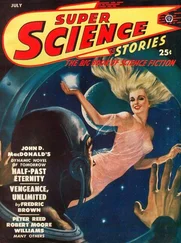“I thought you ought to know, Nan. Is there anything I can do?”
“Thanks, no. I’ve got a number to call. They’ll get people out looking for him. Did he buy a bottle there?”
He asked her to wait a moment. He came back to the phone and said, “No. No bottle yet.”
“Well, here we go again,” Nan said, with a kind of desolated gallantry. “Thanks for phoning me, Jimmy. I better make that call right now.”
When Jimmy went back to his drink, Shannard said, “Trouble?”
“He’s been off it fourteen months. The last time he went three years. His wife’s alerting the AA’s to track him down. Maybe if they grab him soon enough, they can steer him off it.”
“I know Haas by sight, of course.”
“He’s been the route, Leroy. A sweet and brilliant guy. When he was in his twenties he was a top man in the business. Right after the war the drinking started. He drank his way through all the papers who’d take a chance on him, and drank his marriage away, and most of his health, drank himself right down into skid row. Then some kind of rehabilitation outfit got hold of him and picked up all the pieces they could find and put him back together, and scouted a job for him and sent him down here to Ben Killian. Ben tucked him under my wing. I never thought it would work at all. It was hard to communicate with him. He was like some kind of a refugee, like a man who managed to escape by some miracle when his homeland was blown to hell, so that nothing which can ever happen to him again will be very important. But when he started to do all right with routine assignments, he started to come back a little, and when he married Nan McMay about five years ago, he came out of it a lot more.”
“Nanette Melton McMay,” Shannard said. “I was in on that case.”
“Were you? I didn’t remember.”
“Why it didn’t destroy her, I’ll never know. So that makes them a pair of refugees, in a sense. At least she should be strong enough to cope with anything.”
“This is the third time she’s had to face it. The last time he fell off, we got him hooked up with the AA’s, and it seemed to work. Borklund wanted to let him go then. Ben Killian said he could have one more chance. If they don’t get him in time, if he blows it, I don’t know what will happen to him. He’s forty-five. He’s got no place to go, not from here.”
“Howie?” Shannard said. “Once again here. Where were we, James? Oh, we were discussing the infinite variety of the commissioner. Did you get a tidy news story out of him tonight?”
Jimmy Wing felt an immediate wariness. “Nothing I can use right off, Leroy. More like background material.”
“Over the last few years, Elmo has been the best source of any of the five commissioners, I’d imagine.”
“Well, you could say a practical politician on any level makes use of the press. Some of them have a feeling for it. Elmo does. Sometimes it’s a knack of saying nothing in such a way it comes out sounding like news.”
“Would you think Elmo’s knack is worth pursuing?”
“What do you mean?”
“Could he go further with it? Higher offices?”
“If he has the desire. But Elmo has the knack of making money too. Maybe that’s more important to him.”
“But you’re talking about alternate roads to the same thing, Jimmy. Aren’t you?”
“Power and importance? It would depend on what kind Elmo wants, and how much of it he wants.”
“Let’s assume his appetite is insatiable.”
“Where are you heading, Leroy?”
The eagle face creased into a sleepy, knowing grin. “Hell, I’m just talking. He’s an interesting man. I wanted to get your slant on him. He likes you, Jimmy. If you wanted, you could latch on and go along with him. That’s what I’ve been doing.”
“I’d have to wait for him to ask me, Leroy. I’d have to know where he was headed. You see, I can’t think of anything I want very much that I haven’t got.”
Shannard put the money down and got off the stool. Jimmy thanked him and they walked out to their cars.
“I guess I was too obvious about it, Jimmy,” Shannard said.
“Too obvious about what?”
“He said you’d know how to handle it, but I had to check it out myself.”
“I just don’t know what the hell you’re talking about.”
Shannard got into the Thunderbird and grinned up at him. “You’re perfectly right, you know. Elmo should clear it first. But welcome aboard anyway. Night, James.”
By the time Jimmy drove out of the parking area beside the Spanish Mack, Shannard’s car was out of sight. Three carloads of teenagers passed him, cutting from lane to lane, yelling at each other. The stoplights were off, blinking yellow down the length of Center Street through the middle of town toward City Bridge. The lift of the drinks was gone. He felt stale and sleepy.
A block before the bridge he changed his mind about going straight home. He turned right and cut back to Brian Haas’s place. Brian and Nan lived in a garage apartment. The big house had been torn down and replaced by a row of connected one-story shops and small offices erected close to the sidewalk with parking area in the rear. The garage apartment was just beyond the asphalted area. It had a small walled garden at the side, shaded by an enormous banyan tree.
When Jimmy Wing parked by the garden wall and turned his lights off, Nan Haas came hurrying out.
“Just me,” he said. “Anything new?”
“Not yet, Jimmy. They’re looking for him. Come in and help me wait. Isn’t this a hell of a thing?” Her voice was casual, but he could sense the strain behind it. He followed her into the tiny ground-floor living room. She wore white shorts and a dark blue sleeveless blouse. She was barefoot, and her hair was short, curly, brown-blond. Nan was a short, plump woman, ripely curved, light on her feet, firm in her skin, with a round, placid, pretty face and the beginning of a double chin.
“Coffee?” she asked.
“If you have some made.”
“In this house, always.”
He sat in a wicker chair. A big fan by a narrow window turned slowly back and forth, hesitating at the end of each arc, stirring the moist night air. He thought of what Shannard had said about Nan, marveling that what had happened to her hadn’t destroyed her. She had been the exceedingly pretty daughter of a Palm City couple. Her father had been a city fireman. Nan McMay had started winning beauty contests when she was fifteen. She had been a frivolous, vain, uncomplicated child. At eighteen, after placing third in the Miss Florida competition, she had run away to New York with a photographer, planning to become a model. After two grubby years in New York she had the good fortune to meet a very decent boy who wanted to marry her. After she met the boy she broke up with a strange unsettled man with whom she had been having an affair. She and the boy came down to Palm City to be married. The man she had walked out on had been annoying her. He followed her to Florida. On the eve of the wedding he broke into her parents’ home, shot and killed her parents, the boy she was going to marry, a younger sister, a younger brother and himself. Nan was not expected to live either. The bullet he had fired into her had done extensive abdominal damage before lodging against the spine.
Five murders and a suicide would have been given national news coverage in any case, but because the unbalanced man had termed himself a poet, and because Nan had been a winner of beauty contests, and because the suicide note they found on his body made it plain they had lived together, it was given exceptionally lurid and breathless coverage, spiced by her old publicity shots and by his “poetry.”
After she recovered, guilt should have destroyed her. Heartbreak should have destroyed her. Public disapproval should have destroyed her. She should have killed herself, or gone mad, or disappeared. But she instead suffered the homely miracle of becoming an adult. She could never become a whole person. Torture had burned away all trivial things, but had also seared what was left. The radical surgery necessary to save her life had obviated any chance of children.
Читать дальше
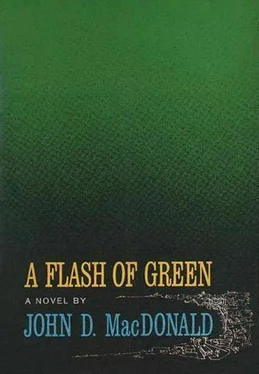
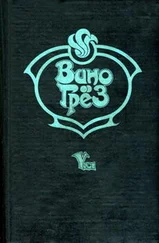
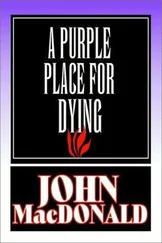

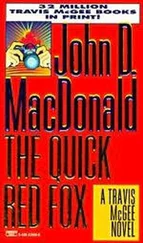
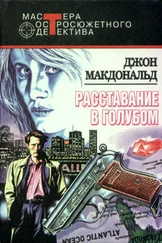



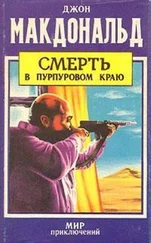
![Джон Макдональд - Wine of the Dreamers [= Planet of the Dreamers]](/books/430039/dzhon-makdonald-wine-of-the-dreamers-planet-of-thumb.webp)

